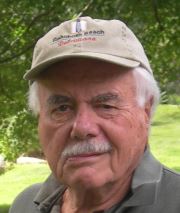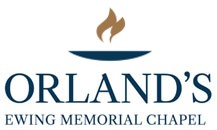
Defined “Lobbying” and Influenced a Generation of NJ Politics
SKILLMAN… Joseph W. Katz, 91, who left an indelible mark on New Jersey politics and advocacy from the newsroom, campaign bus, and State House corridors, died at his home in Skillman on Friday, July 13, 2018.
Before emerging as one of the state’s first and most influential lobbyists, Katz had crossed from reporting on government to working in it. For 10 years, he reported for the Newark Evening News, much of the time as a political reporter, before leaving to advise the 1961 gubernatorial campaign of Democrat Richard J. Hughes. Working for Hughes, widely considered an underdog, Katz developed policy positions and political strategy that contributed to Hughes’s nationally acclaimed 1961 upset victory, replicating on the state level what John F. Kennedy had accomplished nationally a year earlier. He served the Hughes administration as Special Assistant to the Governor, remaining through the governor’s landslide reelection before leaving in 1966 to form the Joseph W. Katz Company.
Katz’s expectations of running a public relations and political messaging shop were quickly up-ended, as his business and trade association clients importuned him to represent their interests before the executive and legislative branches, and as a result to pioneer the role of contract lobbyist. His daughters recall struggling to explain to their schoolmates – and the schoolmates’ parents – exactly what it was “a lobbyist” actually did.
Over 25 years, Katz built Trenton’s leading advocacy and public relations firm, earning a reputation for straight talk and the sobriquet “dean of Trenton lobbyists.” Katz’s firm represented businesses and trade associations “from cradle to grave,” as he put it in a 1995 oral history conducted by Rutgers University, noting, “We represented the Medical Society, which delivered babies, to the Cemetery Association.”
In a 1992 joint legislative resolution occasioned by Katz’s retirement from politics, the N.J. Senate and General Assembly commended his earning “the respect of members of both political parties in the Legislative and Executive branches of government … his knowledge of the most obscure nooks and crannies of the legislative process and the folklore of New Jersey politics, [and] his appreciation of the relationship between politics and farce.”
A son of Eastern European Jews, Katz grew up speaking Yiddish and English interchangeably at home, yet carved a career as wordsmith, analyst and government advocate, exemplifying the ideal of early 20th century immigrant success. He was born in 1927 in Irvington, New Jersey, the first of two children of Anna (Rosenbaum) and Max Katz, owners of a candy store. The family moved to Freehold and, in 1938, Kearny, where they operated a delicatessen and liquor store catering primarily to workers in the nearby factories.
In high school, Katz worked in his parents’ store and wrote about high school sports as a stringer for The Star-Ledger and Sunday Call newspapers. He enrolled at Rutgers University for two semesters before enlisting in the Navy, where he served as a radio technician on ships ferrying World War II troops home from China and Japan.
Katz graduated Rutgers after the war and, with G.I. Bill funding, earned a master’s degree from the Medill School of Journalism at Northwestern. He joined the Newark News in 1951 as a beat reporter. After marrying in 1956, Katz and the former Eileen Wolf, of New York City, raised a family of four daughters, moving from South Orange to Ewing Township to Princeton, where he resided for over forty years. After their divorce, he remarried and again divorced. In later years, he and his first wife hosted annual family reunions for their children and grandchildren.
Katz is survived by his sister, Rosalyn Bendit, of New York City; his daughters and their husbands – Jane (Sam) Katz-Christy, of Cambridge, Mass., Carol Katz (Mark) Connelly of Lawrenceville, N.J., Mandy Katz (Jonathan Massey), of Bethesda, Md., and Dr. Julia Katz (Mark) Schonfeld, of Scarsdale, N.Y. — and ten grandchildren.
Funeral services are Monday, 10:30am, July 16 at Temple Micah, located in the Presbyterian Church of Lawrenceville, 2688 Main Street, Lawrenceville. Burial will follow at Lawrenceville Cemetery. The period of mourning will be observed on Monday and Tuesday evenings, from 6 to 8 pm, at the home of Carol and Mark Connelly in Lawrenceville. The family suggests that those wishing to make a memorial contribution do so to Rutgers University or the American Civil Liberties Union.
